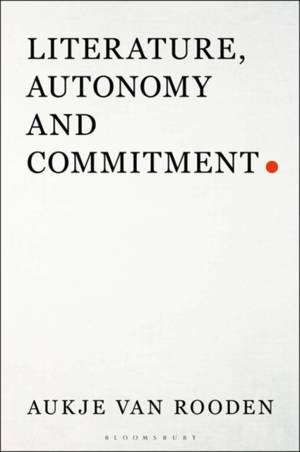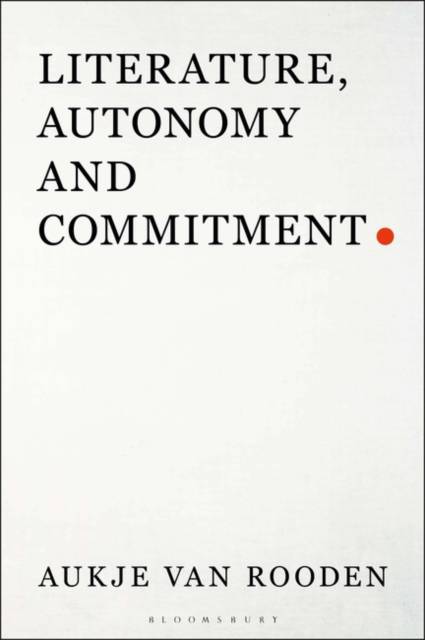
- Afhalen na 1 uur in een winkel met voorraad
- Gratis thuislevering in België vanaf € 30
- Ruim aanbod met 7 miljoen producten
- Afhalen na 1 uur in een winkel met voorraad
- Gratis thuislevering in België vanaf € 30
- Ruim aanbod met 7 miljoen producten
Zoeken
Omschrijving
It is often argued that a new form of committed literature is needed. Embracing the 18th-century Romantic idea of aesthetic autonomy, literature is believed to have turned its back to everyday social and political reality. One of the central questions occupying contemporary literary debates is therefore whether literary autonomy is essential to modern literature ('autonomism') or should be abandoned ('anti-autonomism').
Aukje van Rooden argues that the debate between autonomists and anti-autonomists cannot be anything but a fruitless tug-of-war, because it is based on a distorted historical picture. In order to make sense of the social relevance of contemporary literature, a new theoretical paradigm has to be formulated. Literature, Autonomy and Commitment not only offers an historical-conceptual reconstruction of the Romantic paradigm and the theoretical impasse it has created, but also sketches the outline of a new paradigm, called 'the relational paradigm', based on the relational ontologies developed in 20th- and 21st-century philosophy.Specificaties
Betrokkenen
- Auteur(s):
- Uitgeverij:
Inhoud
- Aantal bladzijden:
- 168
- Taal:
- Engels
Eigenschappen
- Productcode (EAN):
- 9781501344732
- Verschijningsdatum:
- 27/06/2019
- Uitvoering:
- Hardcover
- Formaat:
- Genaaid
- Afmetingen:
- 145 mm x 218 mm
- Gewicht:
- 294 g

Alleen bij Standaard Boekhandel
+ 457 punten op je klantenkaart van Standaard Boekhandel
Beoordelingen
We publiceren alleen reviews die voldoen aan de voorwaarden voor reviews. Bekijk onze voorwaarden voor reviews.







